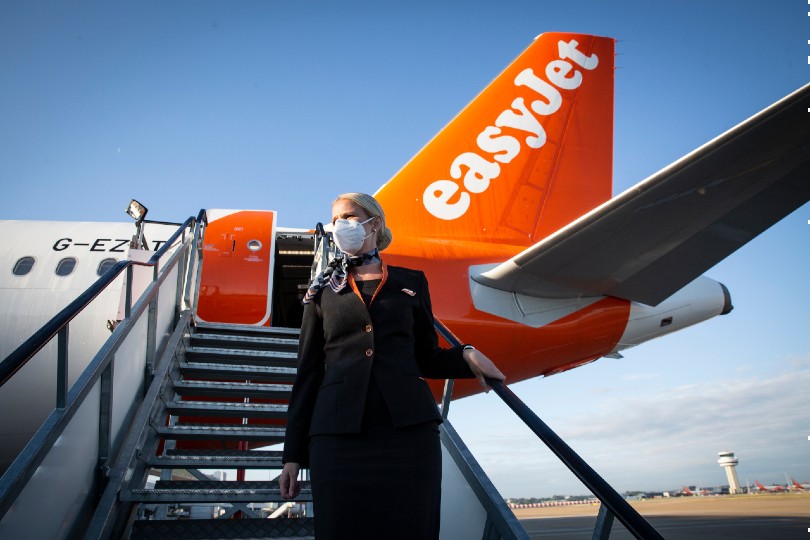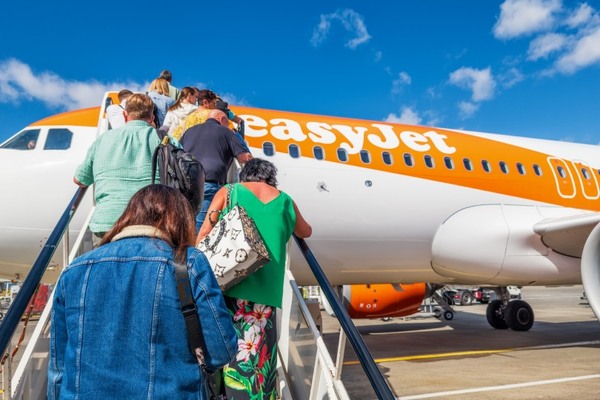EasyJet 'ready to ramp up operations' as European vaccine roll-out 'picks up pace'
 Jennifer Morris
Jennifer MorrisEasyJet has said while it will continue to operate a reduced schedule throughout much of its Q3, it is poised to “ramp up operations” and take customers on holiday this summer to match the level of demand it sees in the market, expecting the European vaccine roll-out to pick up pace in the coming weeks. It added it was looking forward to taking customers on holiday this summer.
The airline reported in its trading update for the six months ended 31 March it expects a first half headline loss before tax in the range of £690 million to £730 million – “slightly better than expectations”.
Passenger numbers for the six months decreased by 89% to 4.1 million, in line with a decrease in capacity to 6.4 million seats, representing 14% of H1 2019 capacity levels.
This led to total group revenue for the six months ending 31 March 2021 decreasing by about 90% to £235 million, with passenger revenue decreasing by 91% to £165 million.
Johan Lundgren, chief executive of easyJet, said: “EasyJet has maintained a disciplined approach to flying during the first half of our financial year, resulting in a first half loss and cash burn better than expectations.
“We continue to have access to significant levels of liquidity alongside easyJet’s major cost-out programme which continues to deliver ongoing cost and efficiency benefits. All of this positions us well to lead the recovery.
“We welcome the confirmation by the UK government that international travel is on track to reopen as planned in mid-May.
“EasyJet was founded to make travel accessible for all and so we continue to engage with government to ensure that the cost of the required testing is driven down so that it doesn’t risk turning back the clock and make travel too costly for some.
“We continue to closely monitor the situation across Europe and with vaccination programmes accelerating, most countries are planning to resume flying at scale in May.
“We have the operational flexibility to rapidly increase flying and add destinations to match demand.
“EasyJet is ready to resume flying, prepared for the ramp up and looking forward to being able to reunite people with their families or take them on leisure and business flights once again.
“As a result, we remain well-positioned for the recovery this summer and beyond.”
As at 31 March 2021 easyJet has unrestricted access to about £2.9 billion of liquidity having raised over £5.5 billion since the beginning of the pandemic.
In terms of outlook, easyJet said based on current travel restrictions in the markets in which it operates it expects to fly up to 20% of 2019 capacity levels in Q3, with an expectation that capacity levels will start to increase from late May onwards.
Customers are booking closer to departure and visibility remains limited, it said.
Elsewhere ancillary revenues represent a significant opportunity for easyJet to increase revenue per seat and margins in the coming years, it said.
In January easyJet launched a new fare class called Standard Plus, which is “performing well”.
Its new cabin bag policy came into effect in February and early indications show that this is also on track relative to its revenue expectations, as well as having a positive effect on its on time performance metrics, the airline said. The ability to bring a large overhead cabin bag on board is now bundled with up front and extra legroom seating. The seating and bag packages are actively yield managed and dynamically priced from £7.99.
Sign up for weekday travel news and analysis straight to your inbox

Jennifer Morris
Supplier Directory
Find contacts for 260+ travel suppliers. Type name, company or destination.












